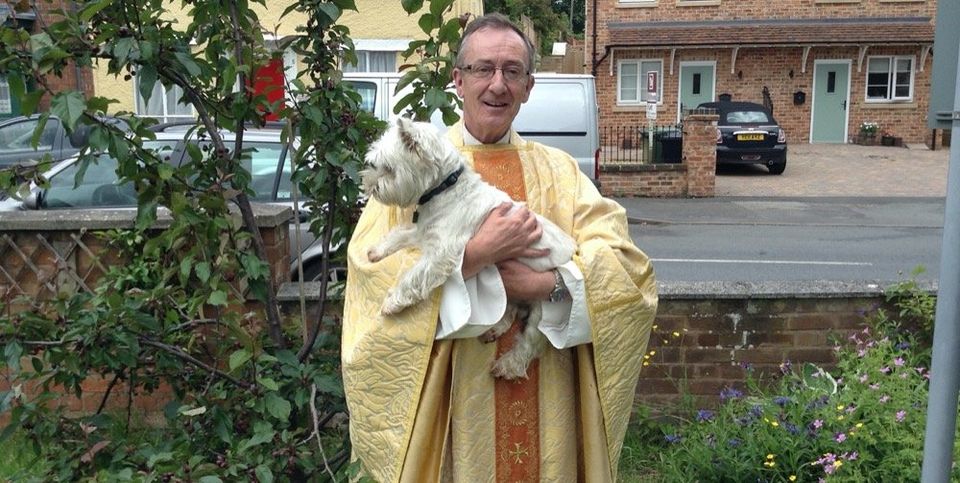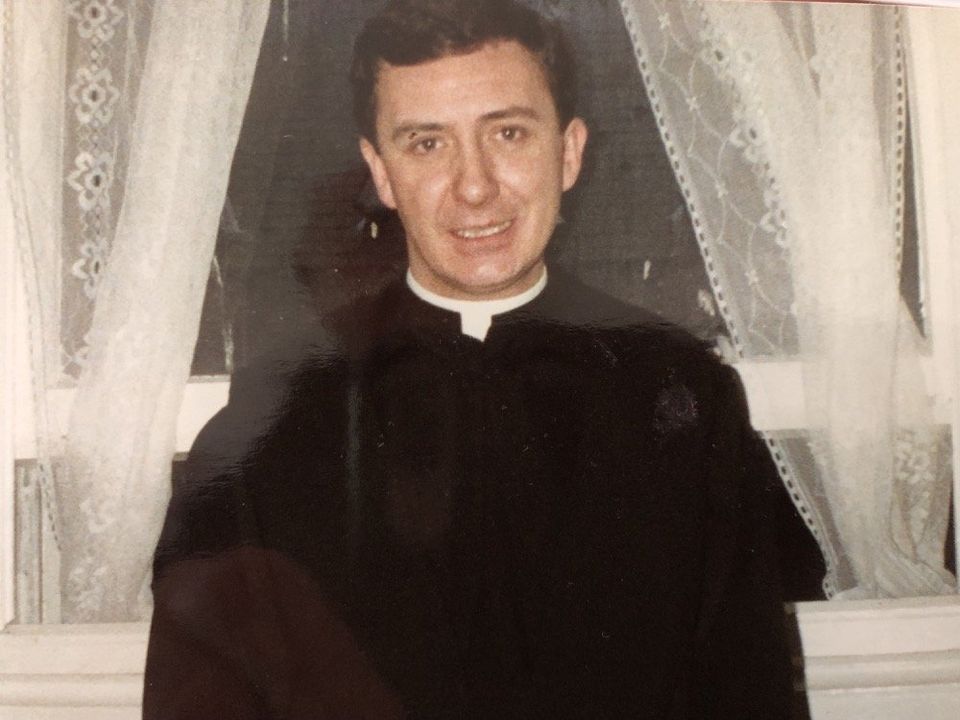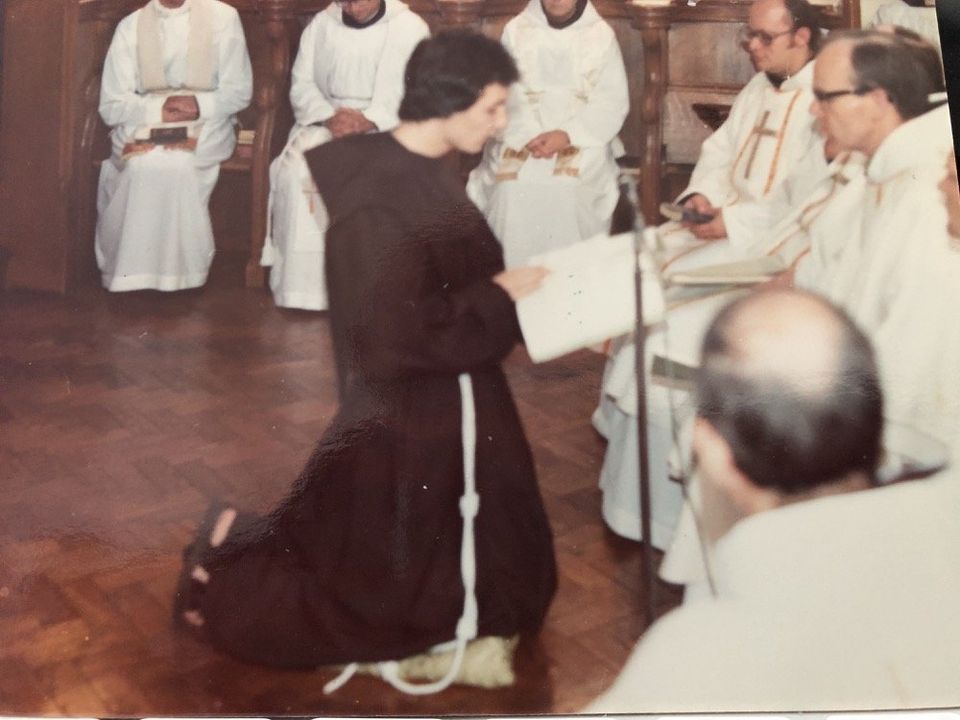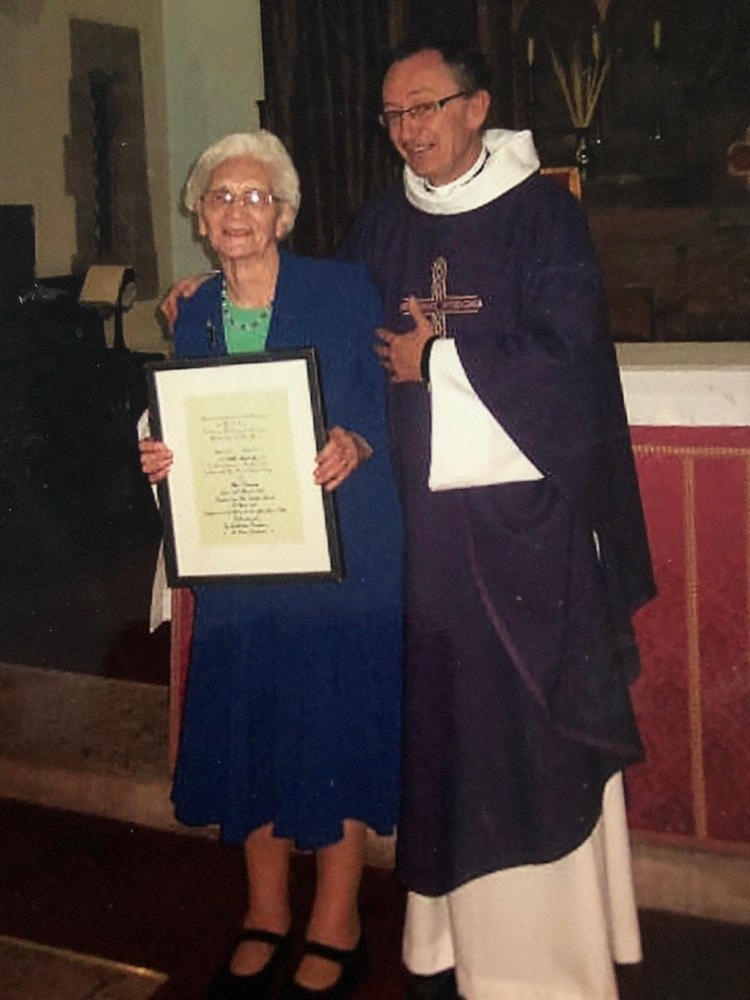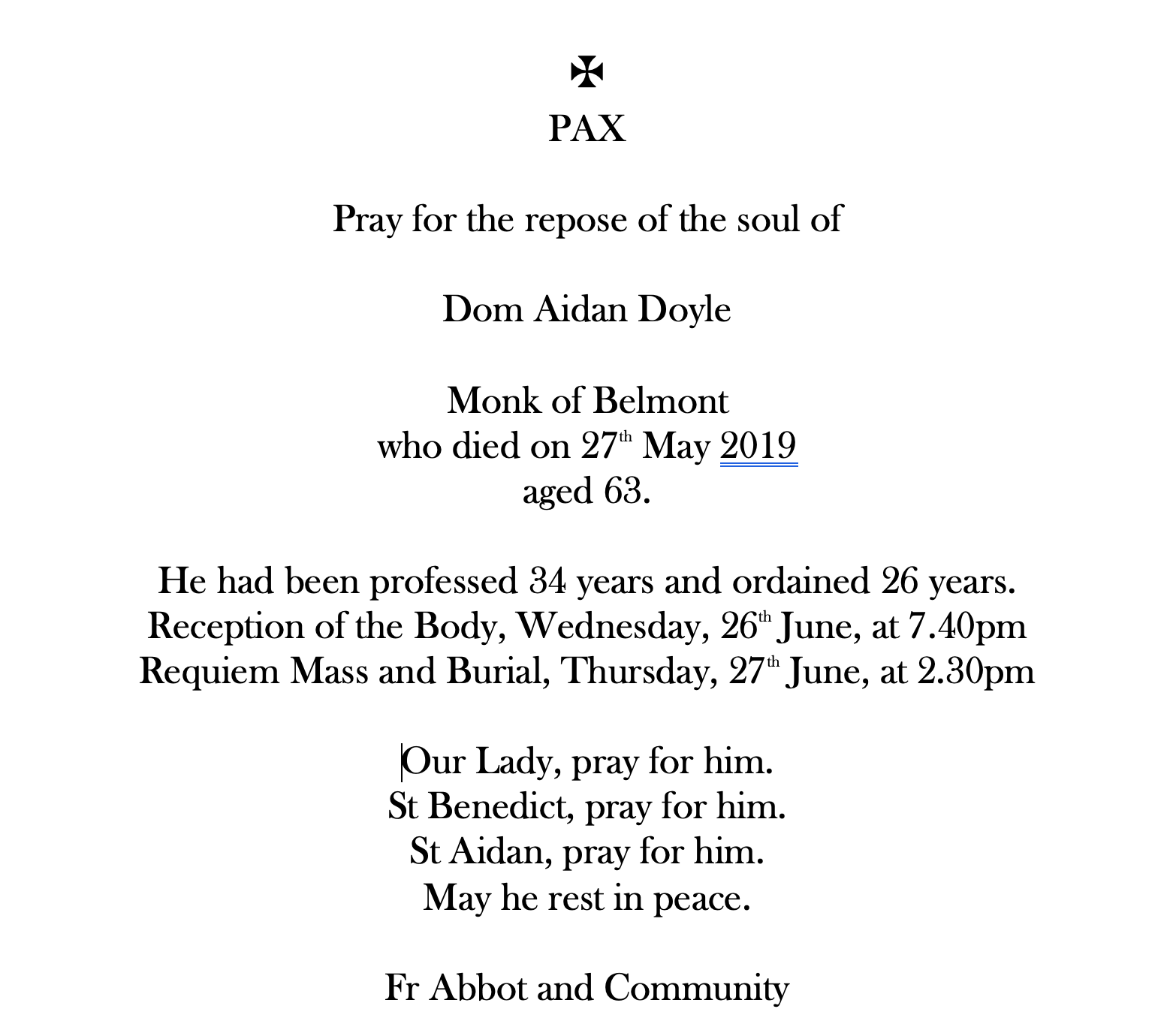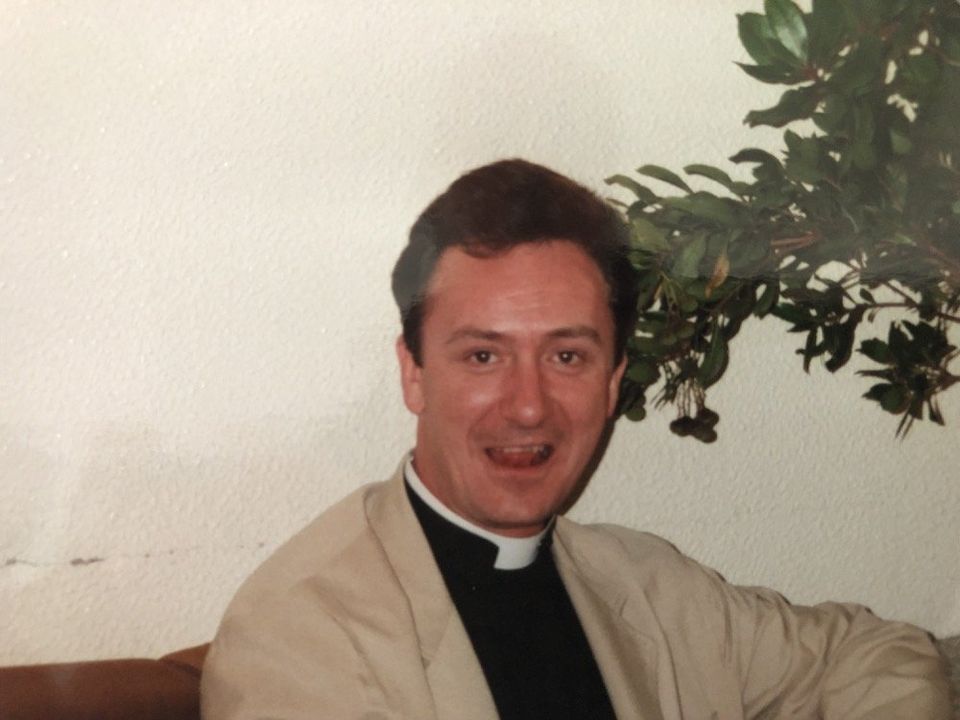Dom Aidan Doyle
Abbot Paul preached the following Homily at the Requiem Mass of Dom Aidan on 27th June 2019. The Church was full for the occasion: Dom Aidan had been a much-loved Parish Priest at Whitehaven, Brynmawr & Abertillery and Leominster & Bromyard.
Fr
Aidan thought St Paul to be a genius, because the things he wrote in his
Epistles seemed to apply directly to him. This was particularly true in his
last years of intense and relentless physical pain and mental anguish, In his
letter to the Romans, St Paul said that, “What we suffer in this life can never
be compared to the glory, as yet unrevealed, which is waiting for us. From the
beginning until now the entire creation, as we know, has been groaning in one
great act of giving birth, and not only creation, but all of us who possess the
first-fruits of the Spirit, we too groan inwardly as we wait for our bodies to
be set free.” Aidan often said that those amazing insights of St Paul described
exactly the way he felt about his own life as a Catholic, a monk and a priest, but
above all as a human being with so many crosses to bear. But, as we all know,
it was precisely that endless suffering and those many crosses that made him
such a compassionate, devoted and loving friend and pastor. We pray today at
his Requiem Mass that, despite his many frailties and flaws, just as he shared in
the sufferings of Christ, so too he will now come to share in his glory, for he
believed God to be infinitely merciful and good.
Joseph James Doyle, son of Joseph John and Margaret Mary (nee Gibson), was born in Liverpool on31st October 1955, the feast of St Aidan, whose name he would take later as a novice at Belmont. He was the eldest of three boys, whose mother died tragically when little Joe was just 5 years’ old. His mother’s cousin Peggy Riley and her husband Hugh took the little boys in and brought them up as their own children, giving them a happy home with all the love and affection they needed to help make up for the loss of their mother. Joseph was educated at St Sylvester’s Primary School and then at Liverpool Collegiate Grammar School, though he left at 16, having taken his CSEs. He worked as a clerk for three years at Jacobs Biscuit Company. Then, in 1975 he tried his vocation, entering the Franciscans and making his First Profession a year later. He was sent to study Philosophy at the Franciscan Study Centre in Canterbury, but did not persevere as a Franciscan and was dispensed from his vows on 20th December 1979. He then went into nursing and worked at the Royal Star and Garter Home, Richmond Hill, Surrey, where he became Chief Care Assistant.
In 1982 he got to know the Belmont Community and on 25th September 1983 he entered the monastery as a Postulant, being clothed in the habit by Abbot Jerome on 7th December, taking the name of Aidan. From now on, he would be known as Brother or Father Aidan, though his family still called him Joe. On the Solemnity of the Immaculate Conception 1984, he made his First Profession and, in September 1985, after an unsuccessful attempt at studies at Oxford, he was sent to Rome to study Theology. He lived at Sant’Anselmo, but went out for classes to the Beda and the Gregorian. Here, as everywhere else, he made many friends and was particularly popular as a spiritual guide and mentor to a group of Carabinieri, whom he grew to love. I promised Aidan that I would make special mention of them in his panegyric. It was also in Rome that he began to experience not infrequent bouts of illness, especially chest infections. He made his Solemn Profession on 8th September 1989, Our Lady’s Birthday, at the hands of Abbot Alan and was ordained by Archbishop Ward, a Capuchin, at Belmont on 26th June 1992. His journey to the Priesthood has not been an easy one. You all remember his Silver Jubilee just two years’ ago.
These were difficult years at Belmont, not that any of us can remember a year that hasn’t been difficult: the school, which was so much part of our life, would close in July 1994. Fr Aidan worked as Monastic Infirmarian, looking after the sick and elderly with professional care and deep affection, which the brethren greatly appreciated. He was also Monastic Guestmaster, work that would extend into Hedley Lodge when it was created as a monastic guesthouse on the closure of the school. Fr Aidan knew how to make guests truly welcome and it was in this capacity that I first met him on one of my visits home to Belmont from Peru in 1995. There was no room for me in the monastery, so I had the good luck to be one of his guests at Hedley. Life was always fun when Aidan was around: I don’t think I had ever laughed so much in all my life. He was, as you all know, a brilliant mimic and could tell a story like no one else. He could entertain you for hours on end. He would have made a fortune as a stand up comedian.
In January 1997, he was asked by Abbot Mark to become assistant priest at St Begh’s, Whitehaven, where he fell in love immediately with the two churches, the parish, the town and its unique people. At Whitehaven he felt truly at home, and with Liverpool half way between Cumbria and Herefordshire, it meant that he could visit Auntie Peggy and his family on his frequent visits to Belmont. He was a wonderful pastor, who took special care of the sick, dying and bereaved. His prayers were much appreciated and his words of encouragement were filled with genuine compassion and love. Those who met him or welcomed him into their homes or in hospital, were always left feeling healed and touched by God and Our Lady, to whom he had the greatest devotion. He was truly a child of Mary. Now Fr Aidan could have been a professional interior decorator. There was nothing he liked better that the challenge of decorating and furnishing a house and church. What his tastes lacked for in sobriety and delicacy, they certainly made up for in colour, flamboyance and flair. The same went for his love of furnishings, curtains and vestments. Wherever he went, he left an indelible mark. Then, of course, there were his flower-arranging skills. People came from all over the North of England to see his exotic flower displays at St Begh’s.
In January 2001 he was appointed Parish Priest of St Begh’s, but in 2003, on the feast of Our Lady of Lourdes, Fr Aidan was hospitalised with a serious chest infection. Eventually, the weight of administration and recurring chest infections, not helped by his addiction to tobacco, got the better of him and he offered me his resignation in 2005. There was also, of course, his ongoing struggle with alcoholism: although a faithful member of AA, there were occasional lapses, but he was a fighter and not easily overcome, especially when he set his mind to it. After a year’s convalescence, in 2006 he was appointed Parish Priest of Brynmawr and Abertillery in the Welsh valleys at the invitation of Archbishop Peter Smith. He was to remain here for 6 years, some of the happiest in his life, his ministry being fruitful and extensive. He loved the school and had a special gift of explaining the faith to children, parents and teachers alike. He would have made a wonderful father. However, there were worrying periods of illness, above all the recurring chest infections. He was greatly loved and appreciated and, although very Catholic and traditional, he always had excellent and respectful ecumenical relations with other churches and ministers. Needless to say, here too he lavishly decorated the house and churches.
In 2013 he was appointed Parish Priest of Leominster and Bromyard, where once again his pastoral skills and attractive personality endeared him to everyone and it was here, in rural Herefordshire, that he found the special companion he needed to fulfill his priestly ministry and support him in his declining health, his beloved Westie, Hugo, named in honour of his revered Fr Hugh, with whom he had worked in Whitehaven. Hugo and Aidan were inseparable, both finding the joy of friendship in each other. One of the important things he achieved in Leominster was to encourage devotion to the Herefordshire martyr, Blessed Roger Cadwallador, whose relic is on the altar here today. However, in 2016, the dark shadow of cancer moved across his life, when Fr Aidan was discovered to have a tumour in the bowel. Despite protracted bouts of chemotherapy, the cancer spread to his liver, where two further tumours were discovered. This led to more chemotherapy that made his life a misery. There appeared to be a glimmer of hope, the possibility of surgery to remove the tumours, now reduced in size, but he was too frail to face surgery and the chest infections became more persistent. A special word of thanks must go out to the nurses and doctors who tended him in Leominster, St Michael’s Hospice and Hereford Hospital and to parishioners of both parishes, who looked after him and Hugo with such tender loving care.
Mercifully, the end came quickly, just a week after being told that surgery was out of the question and that the tumours were returning with vigour. He had always lived in the hope that surgery would bring him back to health, so that he could return to his priestly duties. It was not to be. God, in his infinite wisdom and mercy, had other plans. On Sunday, 26th May, he was anointed for the last time, though by now he was unconscious, and on Monday morning, Solemnity of St Augustine of Canterbury, he died peacefully with Auntie Peggy, his brother Nicholas, his nurse Tina and his beloved companion Hugo nearby. At long last, the painful years of protracted suffering were at an end. Not once was Fr Aidan ever heard to complain, although he was often frustrated and exhausted by it all. His love for God and Our Lady never waned and he was an example to us all of patience and fortitude. He was always more concerned for others than for himself. In today’s Gospel passage Jesus said, “If a man serves me, he must follow me, for where I am, there will my servant be.”
May his loving soul rest in peace and may there be rejoicing among the angels and saints as he journeys through Purgatory towards the joys of Heaven. Amen.

